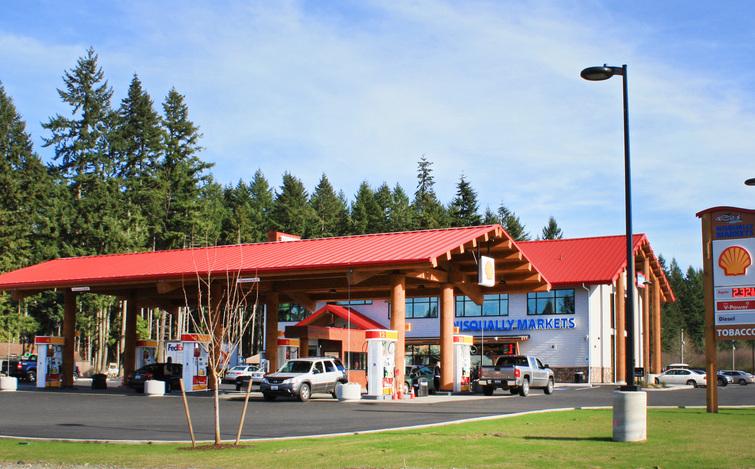Some best practices for tribal convenience stores have to do with specific advantages such as tax and license exceptions. Tony explained that fuel and convenience stores built on reservation land oftentimes don’t have to pay property taxes to the state. In addition, some tribal c-stores are exempt from paying excise and so-called “sin taxes” (taxes placed on specific goods like fuel, tobacco, and alcohol). Networking with TCSA can help tribes learn how to take advantage of these opportunities. Real profit can come from understanding the complexities between states and the on-versus-off-reservation regulations.
Tony made a point that every state is different, and thus every tribe has different needs and understandings. Some are compact states, wherein the tribe enters a legally binding agreement with the state. Some tribes choose not to utilize fuel, and not all take advantage of excise/sales/sin tax exemptions. Ultimately every tribe works with their area to do what is best for them- some choose to sell liquor, others don’t. Some price their fuel competitively, some choose branded fuel, others only supply their fuel. And some tribes, like Nisqually, offer both unbranded and branded fuel. The options for best practices are endless and tailorable to every tribe in every state. Conversations with other member tribes at TCSA events serve to help every tribe identify what is most advantageous for them.
A shared best practice to running a successful tribal c-store is a strategy of uniqueness and differentiation. That said, every tribe adopts a different approach. Establishing uniqueness begins with location, naming, and brand and continues into architecture, decoration, products, services, and the overall customer experience. All of which are a means for tribes to express native pride with their store locations.
For example, the Nisqually Tribe’s differentiating trademark is red canopy roofs. Many other tribal stores have such architectural features in common, such as big timber canopies, red tin roofs, and pitched ceilings. Tony proudly remarked that a lot of the tribes he works with put a lot of effort into ensuring that their stores are aesthetically pleasing, with cohesive color schemes and beautiful tribal touches like artwork, decals, and branding. These details are intended to make tribal c-stores and groceries destination spots, where you can get niche native products, authentic food, beautiful artwork, and more. (Tony offhandedly mentioned ‘Indian tacos and fry bread’ and we haven’t stopped thinking about it since!)
Other best practices include hiring strategies. Tony champions hiring from within the tribe first and seeking hardworking, outgoing individuals who want a long-term future with the store. This practice is beneficial to the tribal community, providing jobs and a source of revenue directly to tribe members. Tony identifies tribal gas and convenience stores as really investing in their employees compared to general c-stores. Stores in the TCSA network tend to offer competitive pay, superior benefits, education, and training, as well as incentives like tuition reimbursement and additional training in management and customer service.
TCSA provides in-depth training on all of these best practices in addition to providing the support and resources to make it all possible. To learn more about TCSA and its mission of “tribes helping tribes” visit their website and explore free educational materials.

